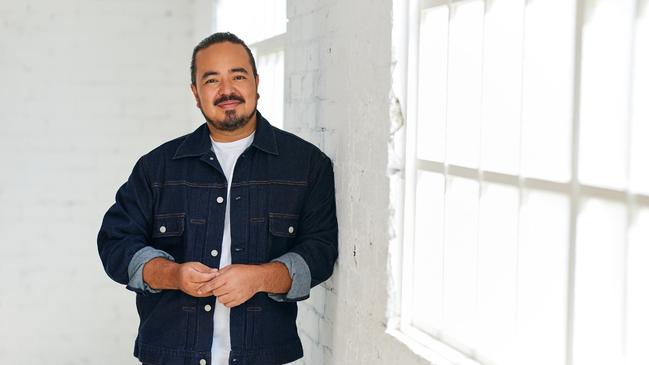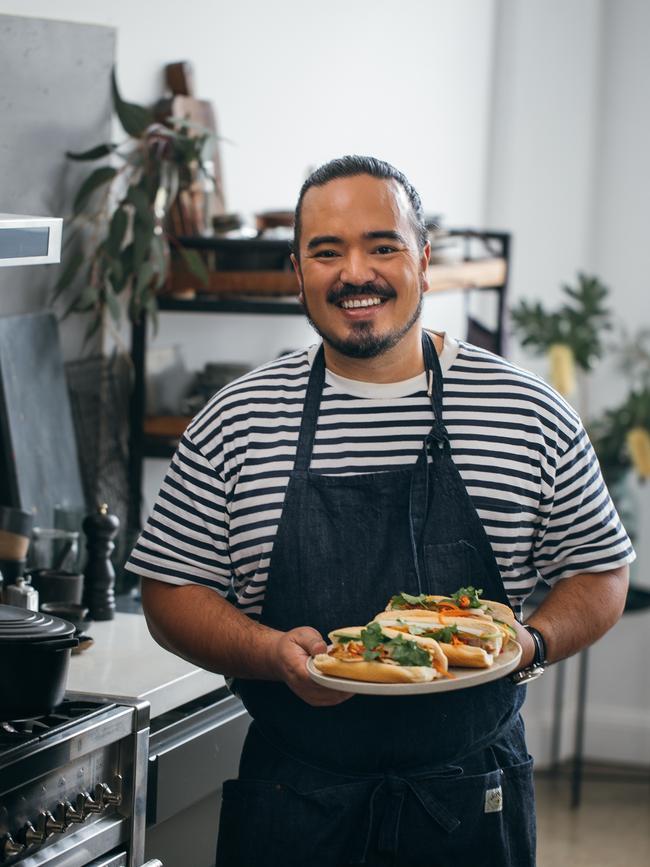‘My grandfather was interned in Changi ... it affected him for the rest of his life’
A link to Adam Liaw’s past has led the television cook and former MasterChef winner to a new role reporting from behind the bars of notorious Singaporean prison, Changi.

How different is the way you cook today to how you cooked when viewers first saw you on MasterChef  15 years ago? Completely different. For a show like MasterChef, you’re not really trying to make things that make sense. You’re trying to make things that people say “Wow” about. I’m just trying to make things that make sense. To me, cooking isn’t a hobby so much anymore. I enjoy it, but if I’m making dumplings it’s because I need to eat.
How long does it take to become a really good cook? I’ve been doing this professionally for 15 years and I think I’m finally good at it. I just noticed the other day I was cooking, and thought to myself, “I know how this is going to go, I know this will taste good. I’m not going to be disappointed.”

Why do you think Australians are so hungry – pardon the pun – for food-related television programs? I think it’s because in Australia we eat very multiculturally, there’s no one “thing”. My wife is Japanese and my in-laws eat Japanese food every day. It’s not like, “Hey, tonight is taco night!” Tonight is Japanese food and so is tomorrow night, and in six years’ time it’s still gonna be Japanese. We forget that for most of the world, food is like that.
SBS’s Dateline recently sent you to Singapore to report from behind the walls of Changi prison. Why were you the man for the job? I have a family history link to Changi – during the war my grandfather was interned there as a British citizen under the Japanese occupation. He always said it was a really difficult place; the experience affected him for the rest of his life. Also, I have a background as a lawyer, and I did an honours dissertation on philosophies of punishment in the criminal system, so it made sense for me to be a part of the program.
You were a teenager when you first studied law. What is it you personally find so interesting about justice? Fairness and justice are related, and I’ve always believed things should be fair. Having a Christian upbringing, you get stuck in this way of thinking whereby if you’re a good person, and do good things, you get good outcomes. If you’re a bad person, and do bad things, you have bad outcomes. That’s what you build a moral philosophy around.
The Singaporean justice system is notorious for being harsh on its prisoners. What were your impressions of Changi? It’s a different system now to what Singapore had previously. The prison seems very safe, it’s hospital-clean, but there’s just this kind of extreme deprivation of liberty – things like just a mat on the floor to sleep on – that are very confronting to see, and that’s where I felt an uneasiness. But they’ve made the switch from pure out-and-out punishment to focusing on rehabilitation, and it has brought about really low recidivism rates.
That’s a situation that obviously doesn’t extend to death row. Singapore has an extraordinarily strict interpretation of the death penalty, and it has very strong support from the general population. I’m not there to judge it, but it’s worth examining the inconsistencies in the system.
First the law, then cooking, now journalism … what’s next? I get pleasure from doing a lot of different things. I like that I can go from being in the kitchen to the next day talking to an inmate or writing articles. I like learning languages, playing music, skiing. In life there’s a temptation to collect experiences and tick them off, but I don’t subscribe to that. My approach is similar to a kind of mindfulness – I just try to appreciate each experience I have.
SBS Dateline returns on March 4 with ‘Singapore’s Toughest Prison’. Also available at SBS On Demand. Adam’s SBS Food series ‘The Cook Up with Adam’ Liaw also returns this year and is also available on SBS On Demand.





To join the conversation, please log in. Don't have an account? Register
Join the conversation, you are commenting as Logout